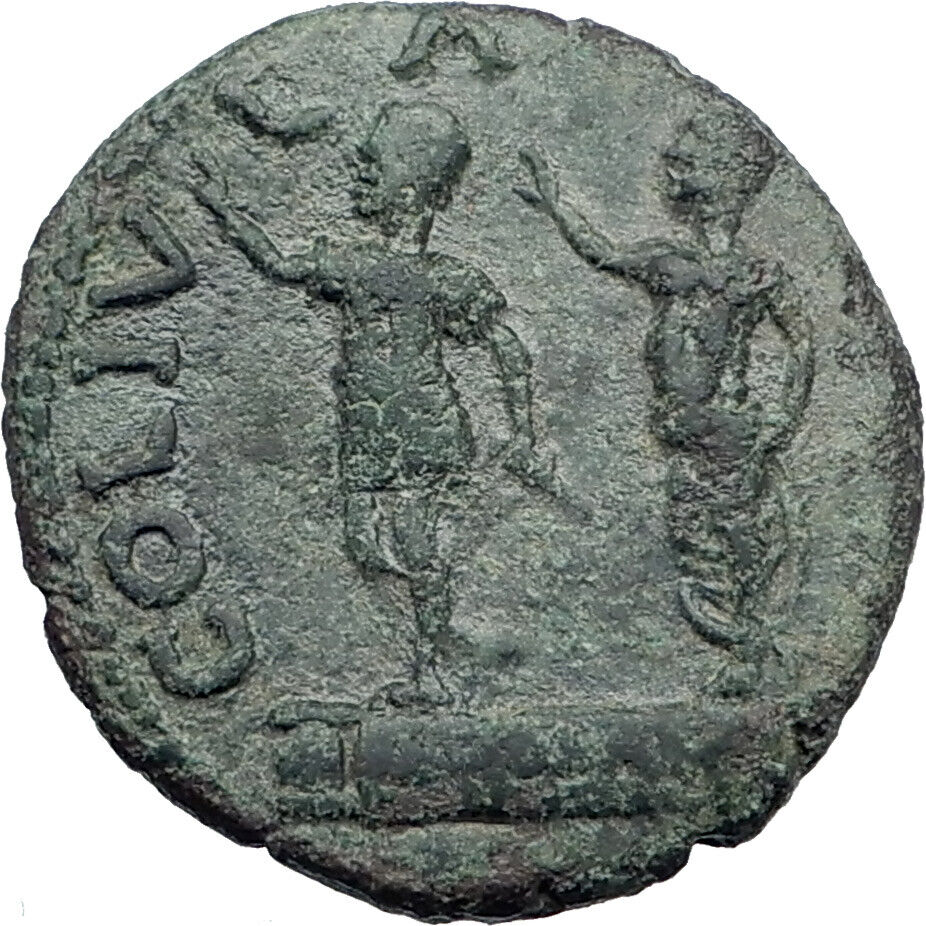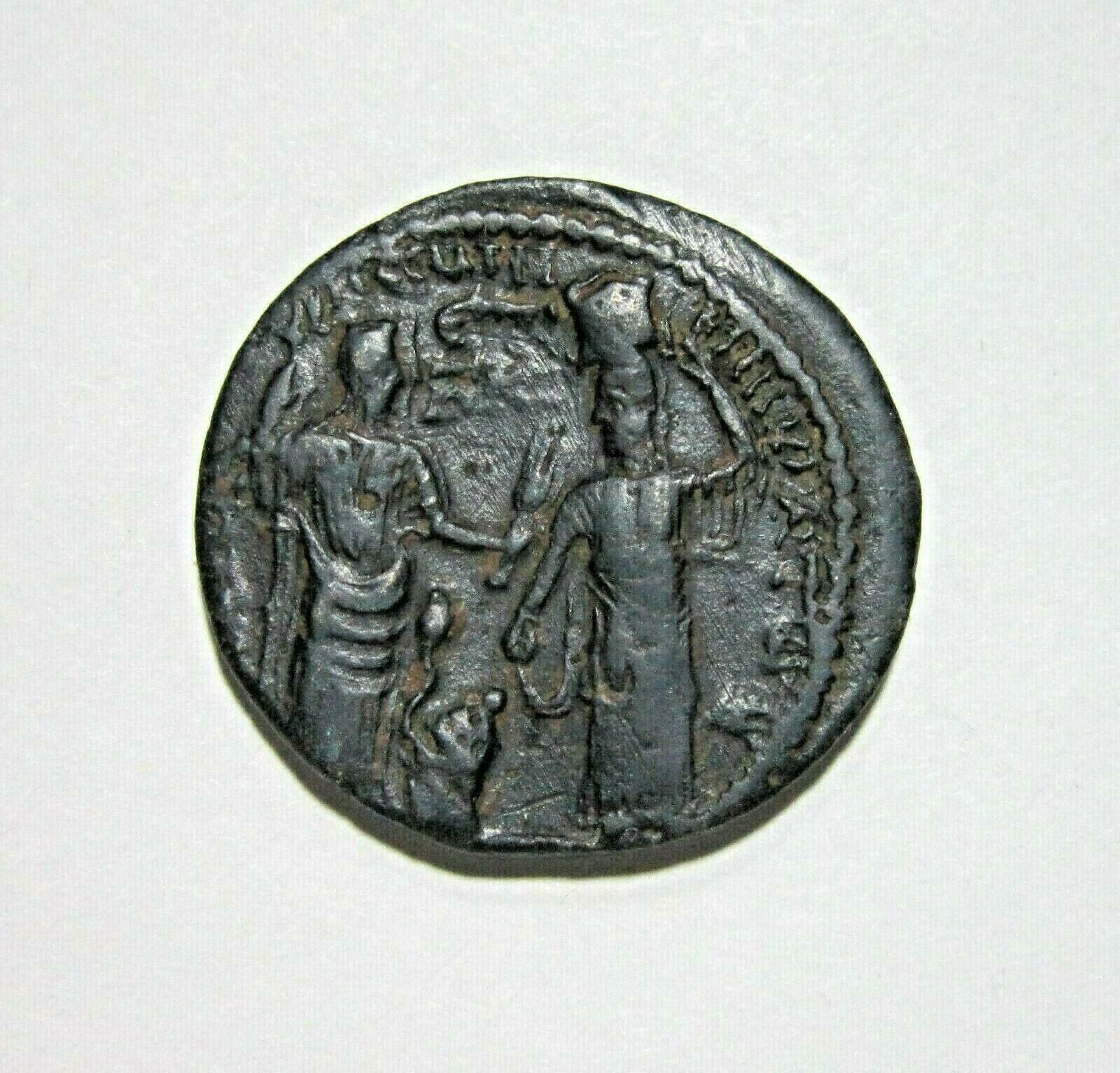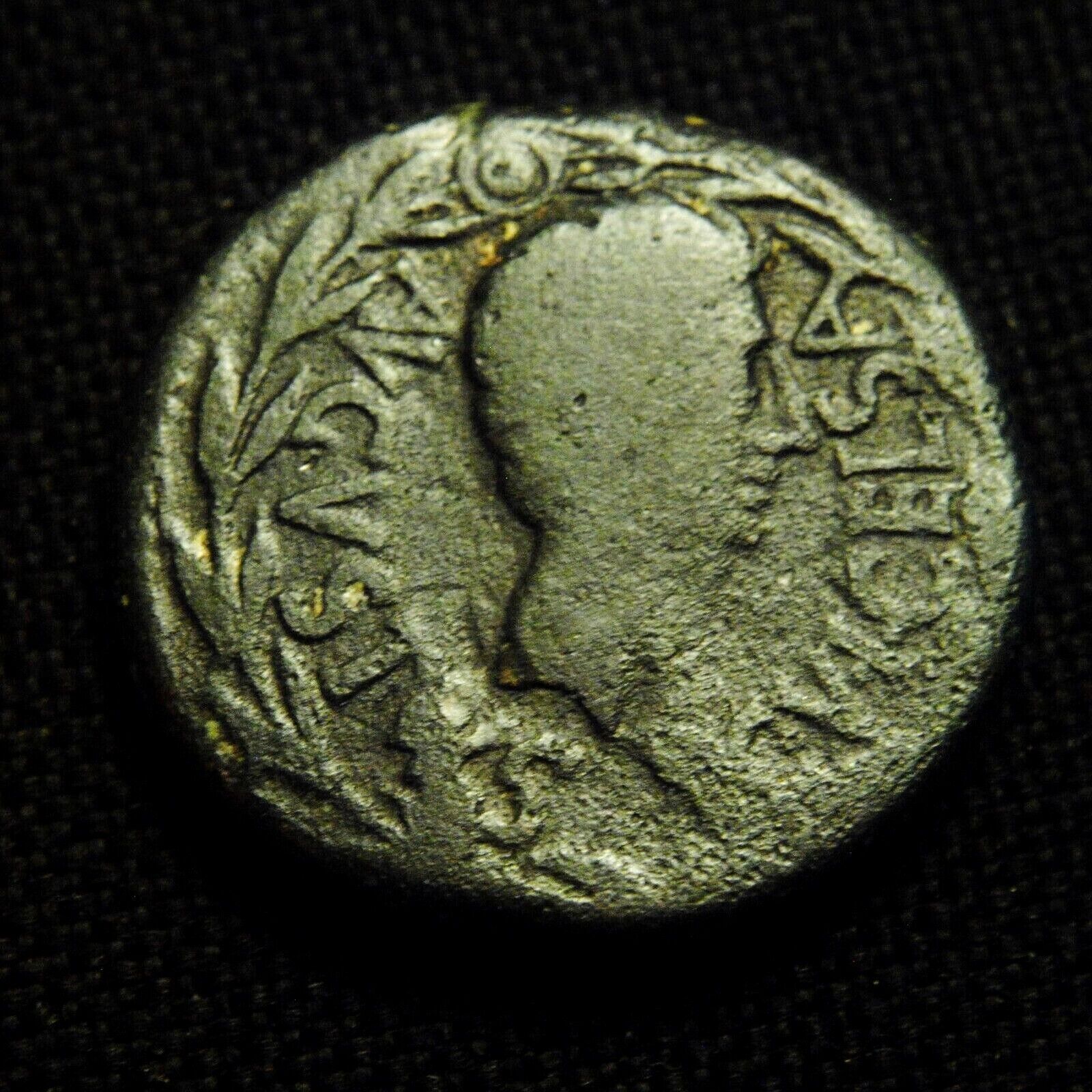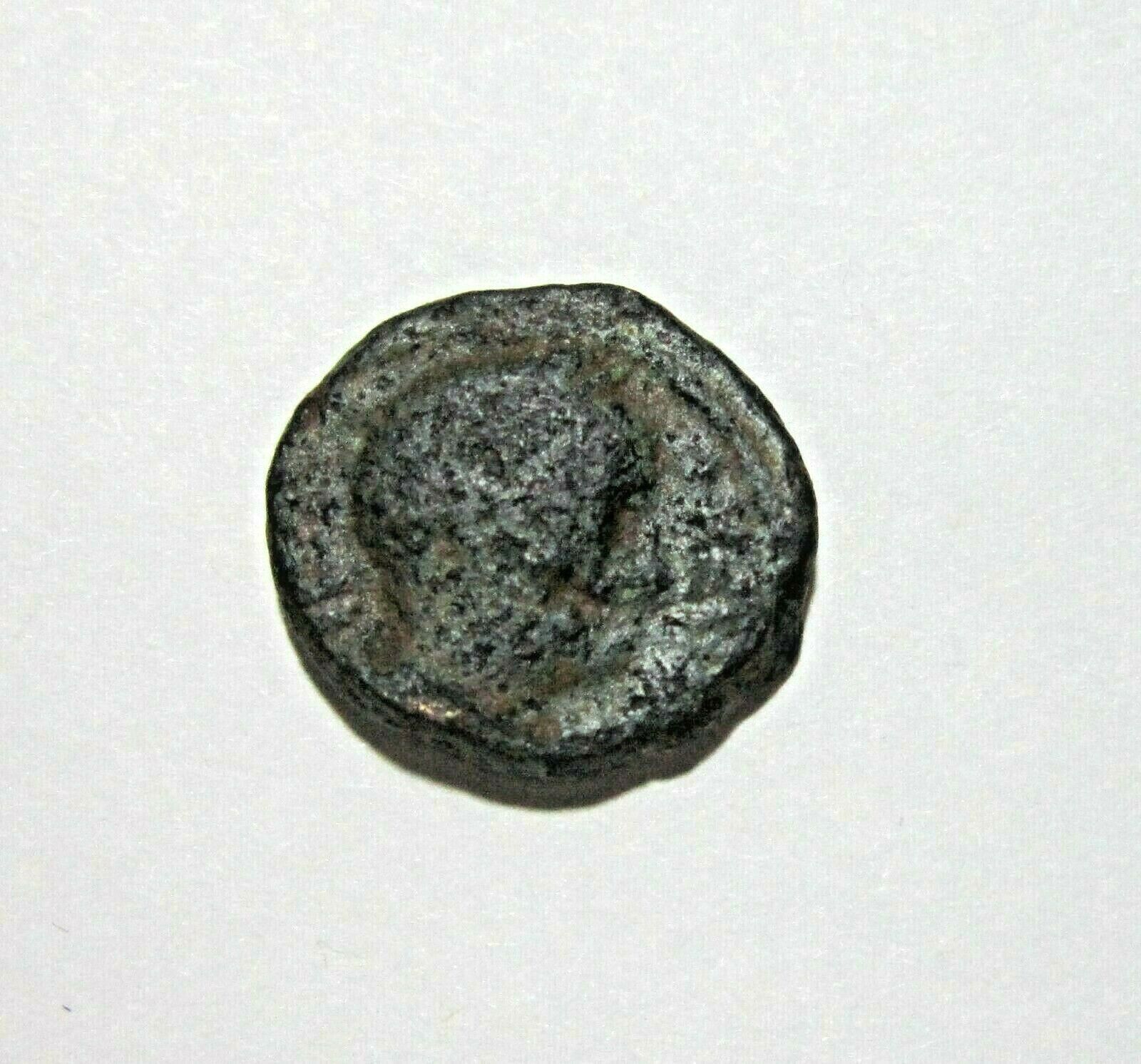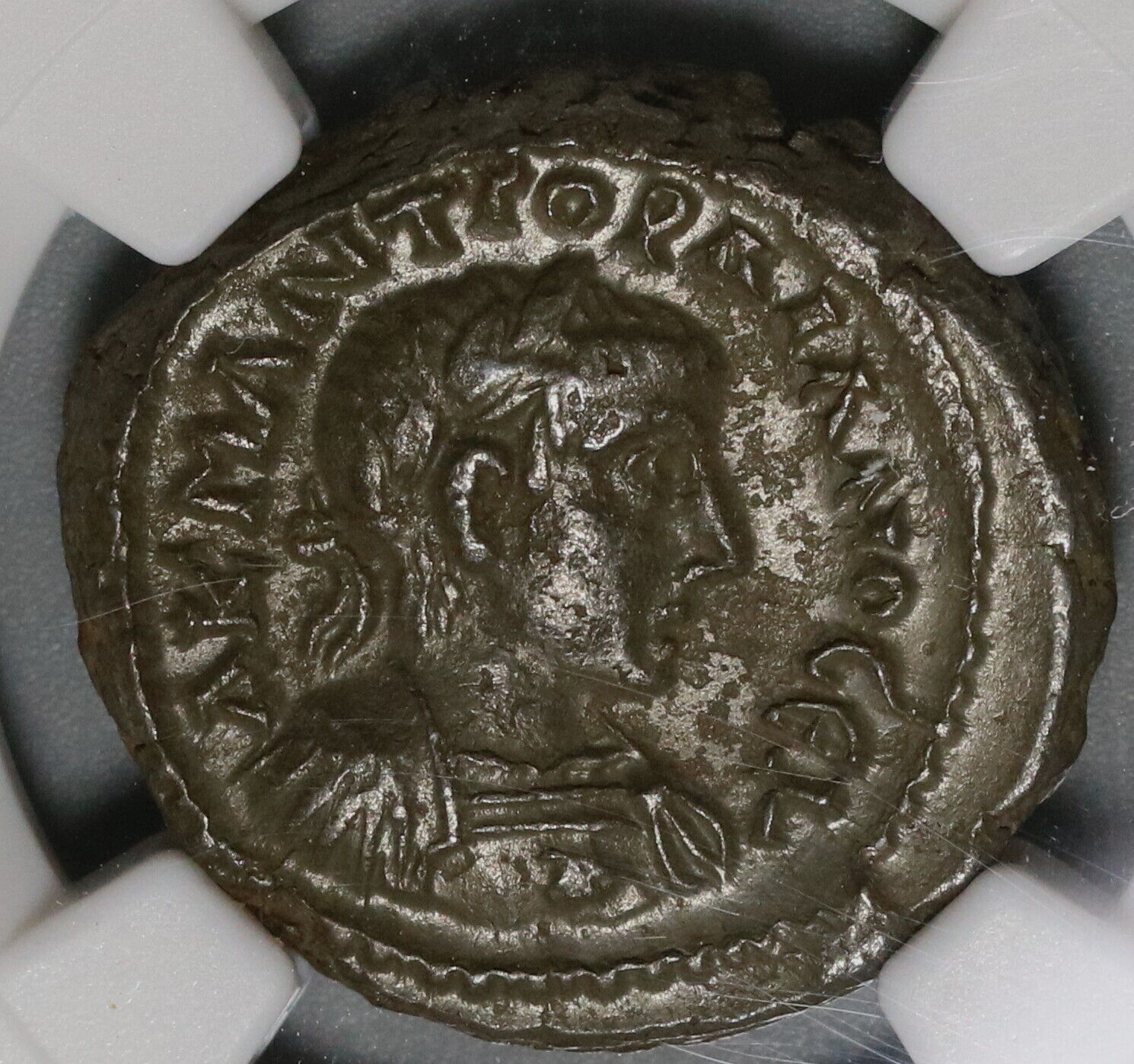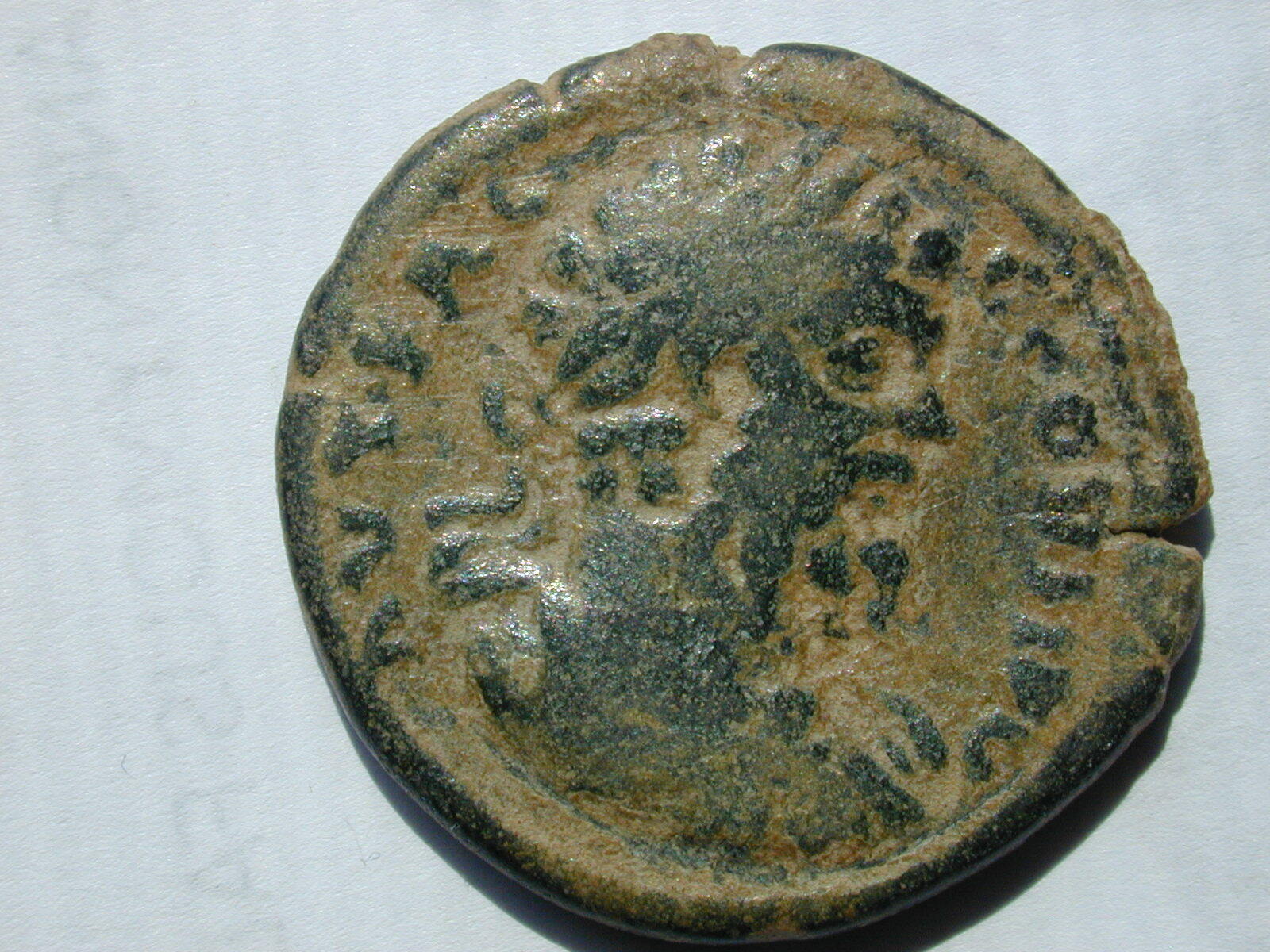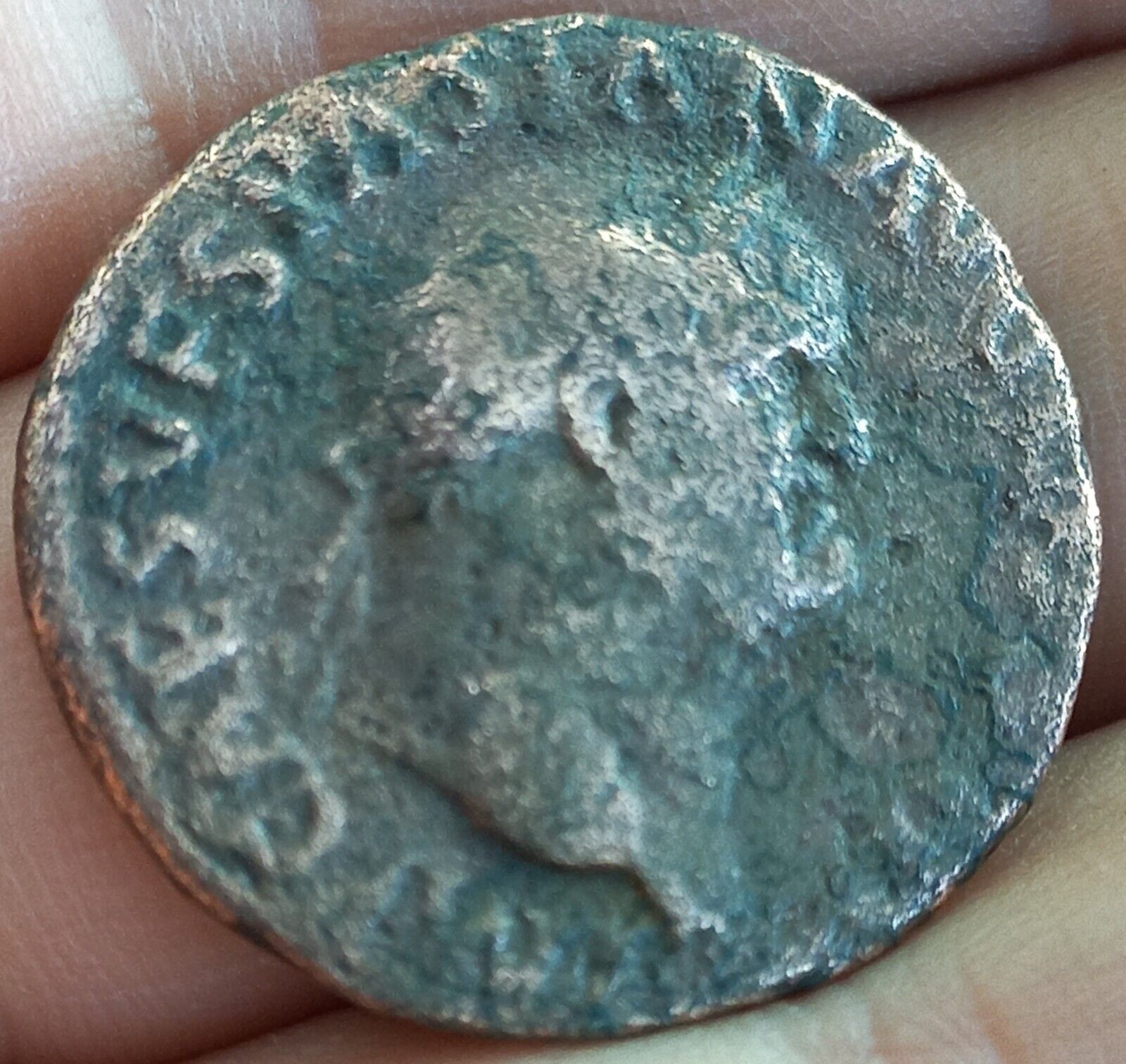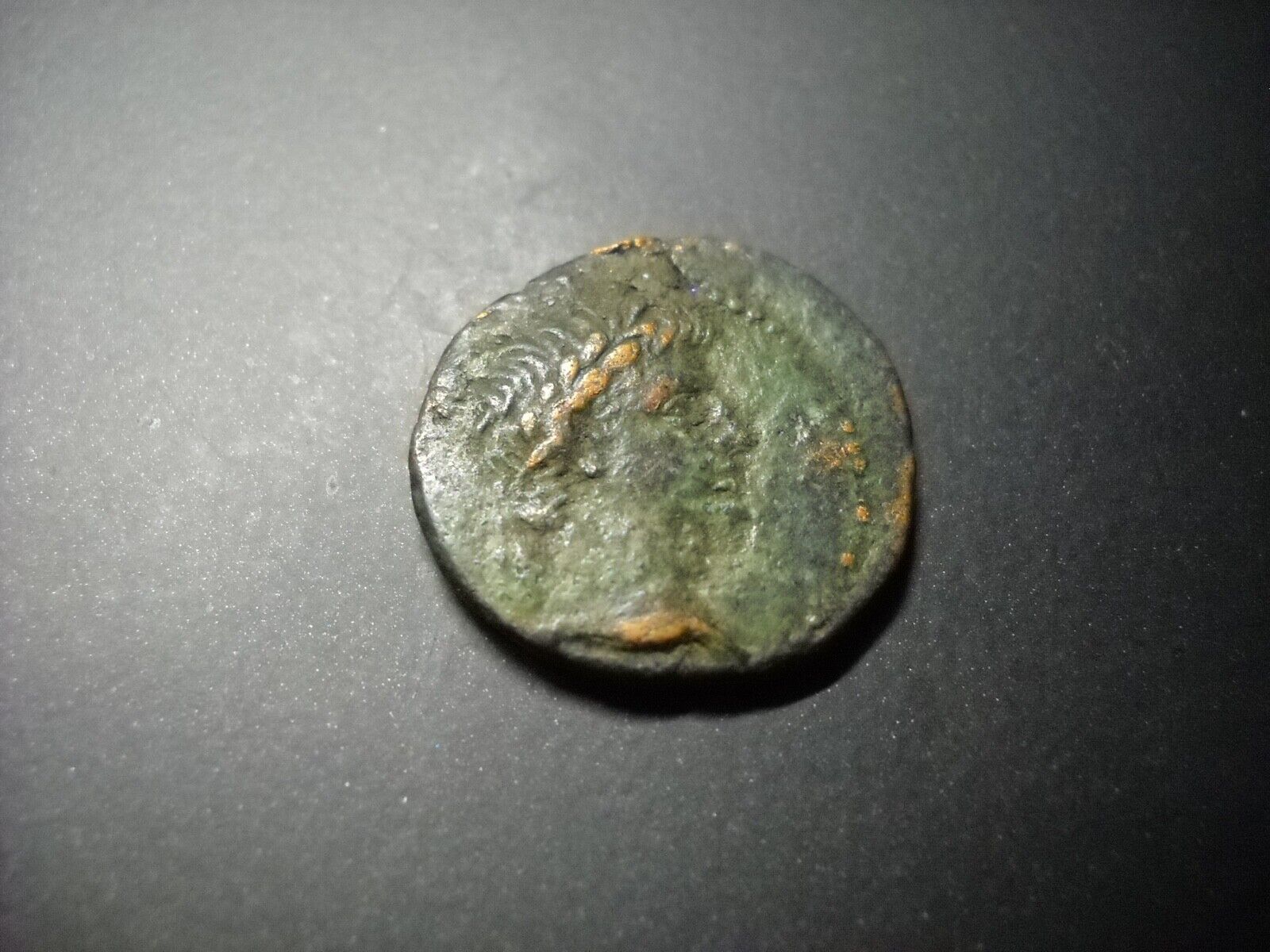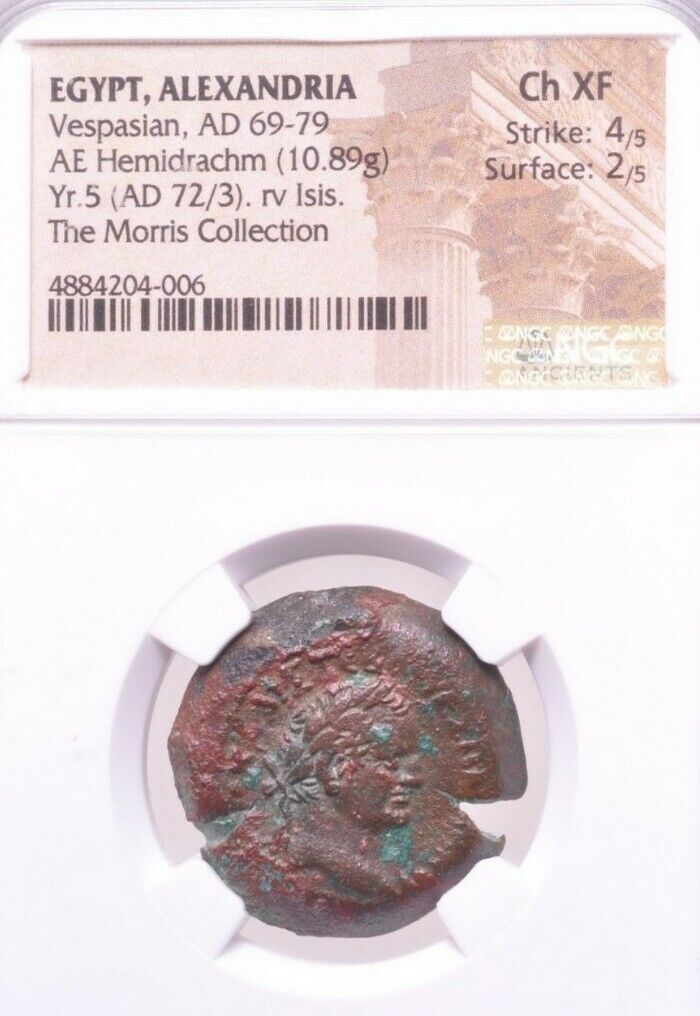-40%
Antoninus Pius Augustus Julius Caesar Statues Philippi Macedon Roman Coin i43614
$ 147.2
- Description
- Size Guide
Description
Item:i43614
Authentic Ancient Coin of:
Antoninus Pius
-
Roman Emperor
: 138-161 A.D.
Bronze 22mm (6.67 grams) of
Philippi
in
Macedonia
Reference: Moushmov 6929
ANTONINVS AVG PIVS P P TR P COS IIII, laureate head right.
COL IVL AVG PHIL, cippus inscribed with DIVVS AVG, on which stand statues of
Augustus (to left) & Julius Caesar (to right), altar on either side of cippus.
You are bidding on the exact item pictured, provided with a Certificate of Authenticity and Lifetime Guarantee of Authenticity.
Titus Aurelius Fulvus Boionius Arrius Antoninus
(19 September 86 – 7 March 161), generally known in English as
Antoninus Pius
was
Roman emperor
from 138 to 161. He was the fourth of the
Five Good Emperors
and a member of the
Aurelii
. He did not possess the
sobriquet
"
Pius
" until after his accession to the throne. Almost certainly, he earned the name "Pius" because he compelled the
Senate
to deify his adoptive father
Hadrian
; the
Historia Augusta
, however, suggests that he may have earned the name by saving senators sentenced to death by Hadrian in his later years.
//
Early life
Childhood and family
He was the son and only child of
Titus Aurelius Fulvus
,
consul
in 89 whose family came from
Nemausus
(modern
Nîmes
) and was born near
Lanuvium
and his mother was Arria Fadilla. Antoninus’ father and paternal grandfather died when he was young and he was raised by
Gnaeus Arrius Antoninus
, his maternal grandfather, a man of integrity and culture and a friend of
Pliny the Younger
. His mother married to Publius Julius Lupus (a man of consular rank),
Suffect Consul
in 98, and bore him a daughter called Julia Fadilla.
Marriage and children
As a private citizen between 110 and 115, he married Annia Galeria
Faustina the Elder
. They had a very happy marriage. She was the daughter of consul
Marcus Annius Verus
and
Rupilia
Faustina (a half-sister to Roman Empress
Vibia Sabina
). Faustina was a beautiful woman, renowned for her wisdom. She spent her whole life caring for the poor and assisting the most disadvantaged Romans.
Faustina bore Antoninus four children, two sons and two daughters. They were:
Marcus Aurelius Fulvus Antoninus (died before 138); his sepulchral inscription has been found at the Mausoleum of Hadrian in Rome.
Marcus Galerius Aurelius Antoninus (died before 138); his sepulchral inscription has been found at the Mausoleum of Hadrian in Rome. His name appears on a Greek Imperial coin.
Aurelia Fadilla (died in 135); she married Lucius Lamia Silvanus, consul 145. She appeared to have no children with her husband and her sepulchral inscription has been found in
Italy
.
Annia Galeria Faustina Minor or
Faustina the Younger
(between 125-130-175), a future Roman Empress, married her maternal cousin, future Roman Emperor
Marcus Aurelius
.
When Faustina died in 141, he was in complete mourning and did the following in memory of his wife:
Deified her as a goddess.
Had a temple built in the Roman Forum in her name, with priestesses in the temple.
Had various coins with her portrait struck in her honor. These coins were scripted ‘DIVAE FAUSTINA’ and were elaborately decorated.
He created a charity which he founded and called it
Puellae Faustinianae
or
Girls of Faustina
, which assisted orphaned girls.
Created a new
alimenta
(see
Grain supply to the city of Rome
).
Favour with Hadrian
Having filled with more than usual success the offices of
quaestor
and
praetor
, he obtained the consulship in 120; he was next appointed by the Emperor
Hadrian
as one of the four
proconsuls
to administer
Italia
, then greatly increased his reputation by his conduct as
proconsul
of
Asia
. He acquired much favor with the Emperor Hadrian, who adopted him as his son and successor on 25 February, 138, after the death of his first adopted son
Lucius Aelius
, on the condition that Antoninus would in turn adopt Marcus Annius Verus, the son of his wife's brother, and Lucius, son of Aelius Verus, who afterwards became the emperors
Marcus Aurelius
and
Lucius Verus
(colleague of Marcus Aurelius).
Emperor
On his accession, Antoninus' name became "Imperator Caesar Titus Aelius Hadrianus Antoninus Augustus Pontifex Maximus". One of his first acts as Emperor was to persuade the
Senate
to grant divine honours to Hadrian, which they had at first refused; his efforts to persuade the Senate to grant these honours is the most likely reason given for his title of
Pius
(dutiful in affection; compare
pietas
). Two other reasons for this title are that he would support his aged father-in-law with his hand at Senate meetings, and that he had saved those men that Hadrian, during his period of ill-health, had condemned to death. He built temples, theaters, and mausoleums, promoted the arts and sciences, and bestowed honours and financial rewards upon the teachers of
rhetoric
and
philosophy
.
In marked contrast to his predecessors
Trajan
and
Hadrian
, Antoninus was not a military man. One modern scholar has written "It is almost certain not only that at no time in his life did he ever see, let alone command, a Roman army, but that, throughout the twenty-three years of his reign, he never went within five hundred miles of a legion".
[2]
His reign was the most peaceful in the entire history of the
Principate
; while there were several military disturbances throughout the Empire in his time, in
Mauretania
,
Iudaea
, and amongst the
Brigantes
in
Britannia
, none of them are considered serious. The unrest in Britannia is believed to have led to the construction of the
Antonine Wall
from the
Firth of Forth
to the
Firth of Clyde
, although it was soon abandoned. He was virtually unique among emperors in that he dealt with these crises without leaving Italy once during his reign, but instead dealt with provincial matters of war and peace through their governors or through imperial letters to the cities such as Ephesus (of which some were publicly displayed). This style of government was highly praised by his contemporaries and by later generations.
Of the public transactions of this period we have scant information, but, to judge by what we possess, those twenty-two years were not remarkably eventful in comparison to those before and after his; the surviving evidence is not complete enough to determine whether we should interpret, with older scholars, that he wisely curtailed the activities of the Roman Empire to a careful minimum, or perhaps that he was uninterested in events away from Rome and
Italy
and his inaction contributed to the pressing troubles that faced not only Marcus Aurelius but also the emperors of the third century. German historian Ernst Kornemann has had it in his Römische Geschichte [2 vols., ed. by H. Bengtson, Stuttgart 1954] that the reign of Antoninus comprised "a succession of grossly wasted opportunities," given the upheavals that were to come. There is more to this argument, given that the Parthians in the East were themselves soon to make no small amount of mischief after Antoninus' passing. Kornemann's brief is that Antoninus might have waged preventive wars to head off these outsiders.
Scholars place Antoninus Pius as the leading candidate for fulfilling the role as a friend of Rabbi
Judah the Prince
. According to the
Talmud
(Avodah Zarah 10a-b), Rabbi Judah was very wealthy and greatly revered in Rome. He had a close friendship with "Antoninus", possibly Antoninus Pius,
[3]
who would consult Rabbi Judah on various worldly and spiritual matters.
Temple of Antoninus and
Faustina
in the
Roman forum
(now the church of
San Lorenzo in Miranda
). The emperor and his
Augusta
were deified after their death by
Marcus Aurelius
.
After the longest reign since Augustus (surpassing
Tiberius
by a couple of months), Antoninus died of fever at
Lorium
in
Etruria
, about twelve miles (19 km) from Rome, on 7 March 161, giving the keynote to his life in the last word that he uttered when the
tribune
of the night-watch came to ask the password—"aequanimitas" (equanimity). His body was placed in
Hadrian's mausoleum
, a
column
was dedicated to him on the
Campus Martius
, and the
temple
he had built in the Forum in 141 to his deified wife Faustina was rededicated to the deified Faustina and the deified Antoninus.
Historiography
The only account of his life handed down to us is that of the
Augustan History
, an unreliable and mostly fabricated work. Antoninus is unique among Roman emperors in that he has no other biographies. Historians have therefore turned to public records for what details we know.
In later scholarship
Antoninus in many ways was the ideal of the landed gentleman praised not only by ancient Romans, but also by later scholars of classical history, such as
Edward Gibbon
or the author of the article on Antoninus Pius in the ninth edition of the Encyclopedia Britannicaca:
A few months afterwards, on Hadrian's death, he was enthusiastically welcomed to the throne by the Roman people, who, for once, were not disappointed in their anticipation of a happy reign. For Antoninus came to his new office with simple tastes, kindly disposition, extensive experience, a well-trained intelligence and the sincerest desire for the welfare of his subjects. Instead of plundering to support his prodigality, he emptied his private treasury to assist distressed provinces and cities, and everywhere exercised rigid economy (hence the nickname κυμινοπριστης "cummin-splitter"). Instead of exaggerating into treason whatever was susceptible of unfavorable interpretation, he spurned the very conspiracies that were formed against him into opportunities for demonstrating his clemency. Instead of stirring up persecution against the Christians, he extended to them the strong hand of his protection throughout the empire. Rather than give occasion to that oppression which he regarded as inseparable from an emperor's progress through his dominions, he was content to spend all the years of his reign in Rome, or its neighborhood.
Frequently Asked d Questions
How long until my order is shipped?:
Depending on the volume of sales, it may take up to 5 business days for shipment of your order after the receipt of payment.
How will I know when the order was shipped?:
After your order has shipped, you will be left positive feedback, and that date should be used as a basis of estimating an arrival date.
After you shipped the order, how long will the mail take?
USPS First Class mail takes about 3-5 business days to arrive in the U.S., international shipping times cannot be estimated as they vary from country to country. I am not responsible for any USPS delivery delays, especially for an international package.
What is a certificate of authenticity and what guarantees do you give that the item is authentic?
Each of the items sold here, is provided with a Certificate of Authenticity, and a Lifetime Guarantee of Authenticity, issued by a world-renowned numismatic and antique expert that has identified over 10000 ancient coins and has provided them with the same guarantee. You will be quite happy with what you get with the COA; a professional presentation of the coin, with all of the relevant information and a picture of the coin you saw in the listing.
Compared to other certification companies, the certificate of authenticity is a -50 value. So buy a coin today and own a piece of history, guaranteed.
Is there a money back guarantee?
I offer a 30 day unconditional money back guarantee. I stand behind my coins and would be willing to exchange your order for either store credit towards other coins, or refund, minus shipping expenses, within 30 days from the receipt of your order. My goal is to have the returning customers for a lifetime, and I am so sure in my coins, their authenticity, numismatic value and beauty, I can offer such a guarantee.
Is there a number I can call you with questions about my order?
You can contact me directly via ask seller a question and request my telephone number, or go to my About Me Page to get my contact information only in regards to items purchased on eBay.
When should I leave feedback?
Once you receive your order, please leave a positive. Please don't leave any negative feedbacks, as it happens many times that people rush to leave feedback before letting sufficient time for the order to arrive. Also, if you sent an email, make sure to check for my reply in your messages before claiming that you didn't receive a response. The matter of fact is that any issues can be resolved, as reputation is most important to me. My goal is to provide superior products and quality of service.
